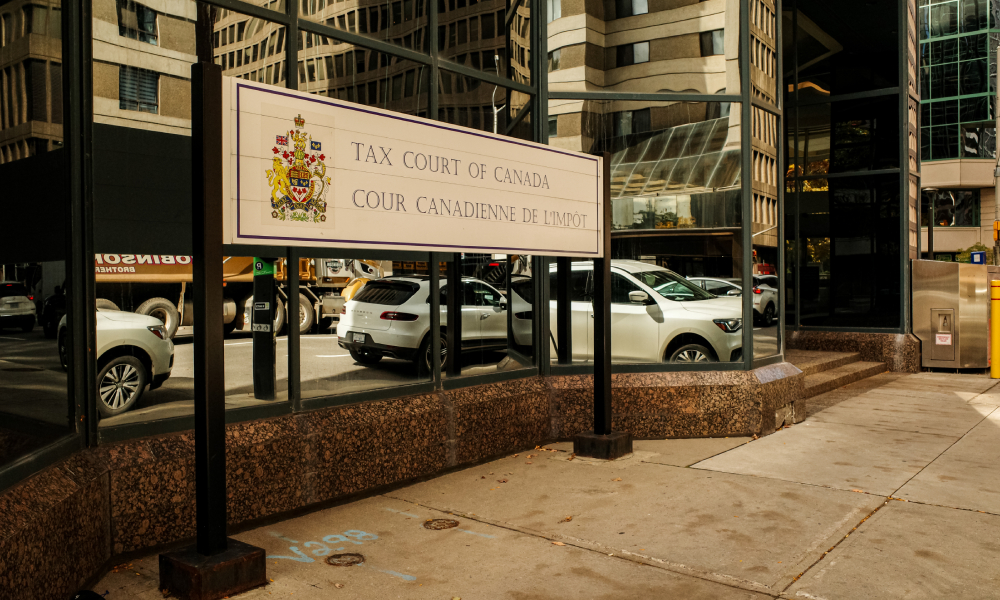
Case discusses income tax consequences to five appellants under s. 160 and s. 245 of Income Tax Act

A recent Tax Court of Canada decision, which found both s. 160 and the general anti-avoidance rule in s. 245 of the Income Tax Act inapplicable, may significantly affect commercial transactions, Dentons Canada LLP, which represented Damis Properties, has noted in a news release.
“[T]he application of the GAAR in this case could potentially have serious adverse implications for other arm’s length share sale transactions where assets in the target are used in whole or in part to fund the purchase price of the shares,” wrote Justice John Owen for the tax court in Damis Properties Inc. v. The Queen, 2021 TCC 24.
Five general partnerships owned farmland in Brampton, Ontario, with the five appellants in this case each owning 99.99 per cent interest in one of the general partnerships. Following the sale of the farmland, the appellants undertook transactions in 2006 to increase their after-tax return from the sale. The transactions isolated the sale proceeds and income in a subsidiary newly incorporated by each appellant.
Through a share put agreement, each appellant sold its subsidiary to Wilshire Technology Corporation (WTC). The subsidiaries executed assignments of receivable and/or directions in favour of WTC so that it could acquire the shares in all the subsidiaries. WTC then transferred around 82 per cent of the property to the appellants to pay for the shares in the subsidiaries, through assignments of receivable and/or directions that WTC executed in favour of the appellants. WTC’s nominee executed all these documents.
The minister of national revenue assessed each appellant under s. 160, for the underlying income tax liability of each appellant’s subsidiary for the taxation year ending Dec. 31, 2006, and in the alternative, under the general anti-avoidance rule in s. 245. The minister submitted that the transactions were avoidance transactions directly or indirectly amounting to an abuse of s. 160.
The appellants contended that the transaction were ordinary commercial transactions so there was no abuse of s. 160, which was inapplicable, and that the minister failed to establish the existence of the subsidiaries’ underlying tax liability for the taxation year.
The appellants also argued that, even if such liability existed, three of the four conditions for the application of s. 160(1) were not met: there was no transfer of property from the subsidiaries to the appellants; even if there was a transfer, the subsidiaries and the appellants were dealing at arm’s length at the time of the transfer; and the fair market value of the consideration that the appellants gave equalled or exceeded the fair market value of the property transferred by the subsidiaries.
The Tax Court of Canada allowed the appeals and vacated the appellants’ assessments under s. 160. The court found that the appellants and the subsidiaries were dealing at arm’s length at the time of the transfer of the property from the subsidiaries to the appellants on Dec. 31, 2006. Thus, the condition in s. 160(1)(c) for the application of s. 160(1)(d) and (e) was not met.
On the issue of whether the appellants and the subsidiaries were dealing in arm’s length, the court noted that the transfer of the property, first from the subsidiaries to WTC and second from WTC to the appellants, took place via share put agreements between the appellants and WTC, which upon the exercise of the put became binding agreements of purchase and sale. Therefore, the transfer did not involve any contract or other arrangement between the subsidiaries and the appellants.
As of the time of the transfer, the appellants had neither board-level nor officer-level control and had no legal control of the subsidiaries, the court found. There was also no evidence suggesting that the appellants kept directing the subsidiaries’ actions or influencing or controlling the subsidiaries’ activities after Dec. 29, 2006. The court called attention to actions pointing toward the conclusion that the appellants and WTC had separate interests in the transactions.
The court also determined that the general anti-avoidance rule did not apply to any of the transactions. The court noted that this rule could only apply to deny a tax benefit if the abusive nature of the transaction is clear. The court, considering the assumptions of fact and the evidence, found that the tax benefit identified by the minister did not exist in the present case.
A legal team from Dentons consisting of Yves St-Cyr, tax partner, and Jacob Yau, senior associate, successfully acted in this case, said the firm’s news release.